For this month’s pictures, I am again using
How could I resist? They are too cute!
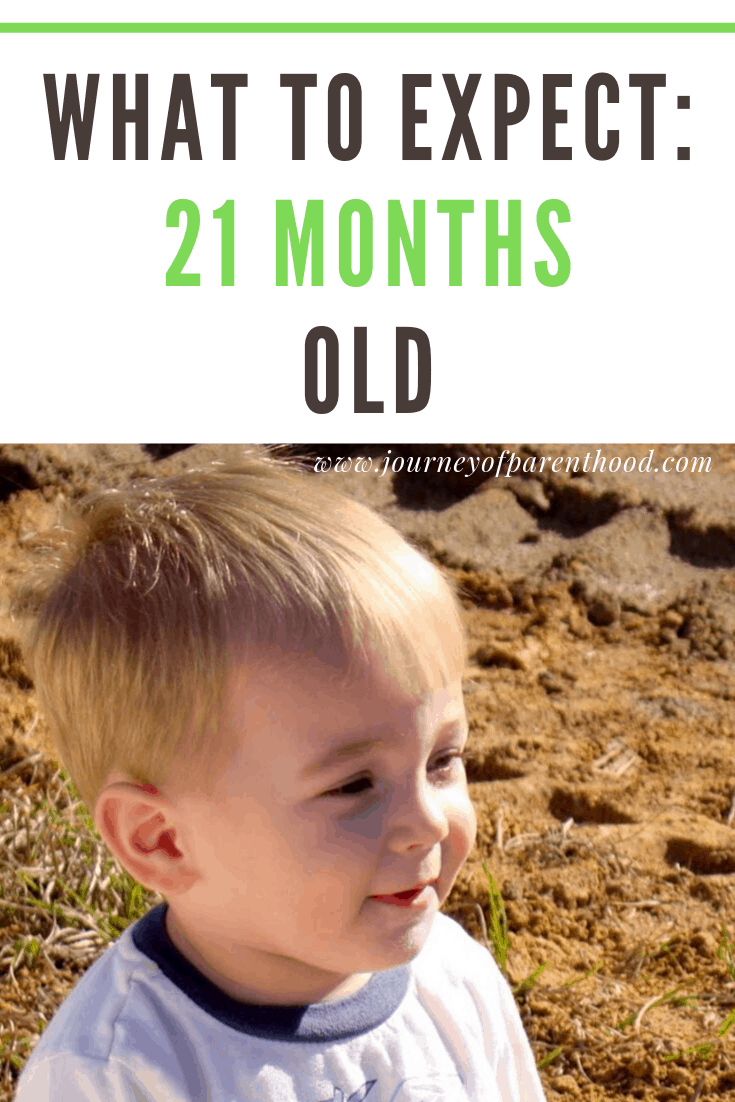
When we were over talking to the landscape guy Kye couldn’t stop himself from playing in a pile of dirt.
Who can blame him? It was SUCH a “boy” moment and I loved it!
I think the foreman and landscape guy thought I was an idiot standing there taking pictures of my kid playing in a dirt pile, but whatever 🙂
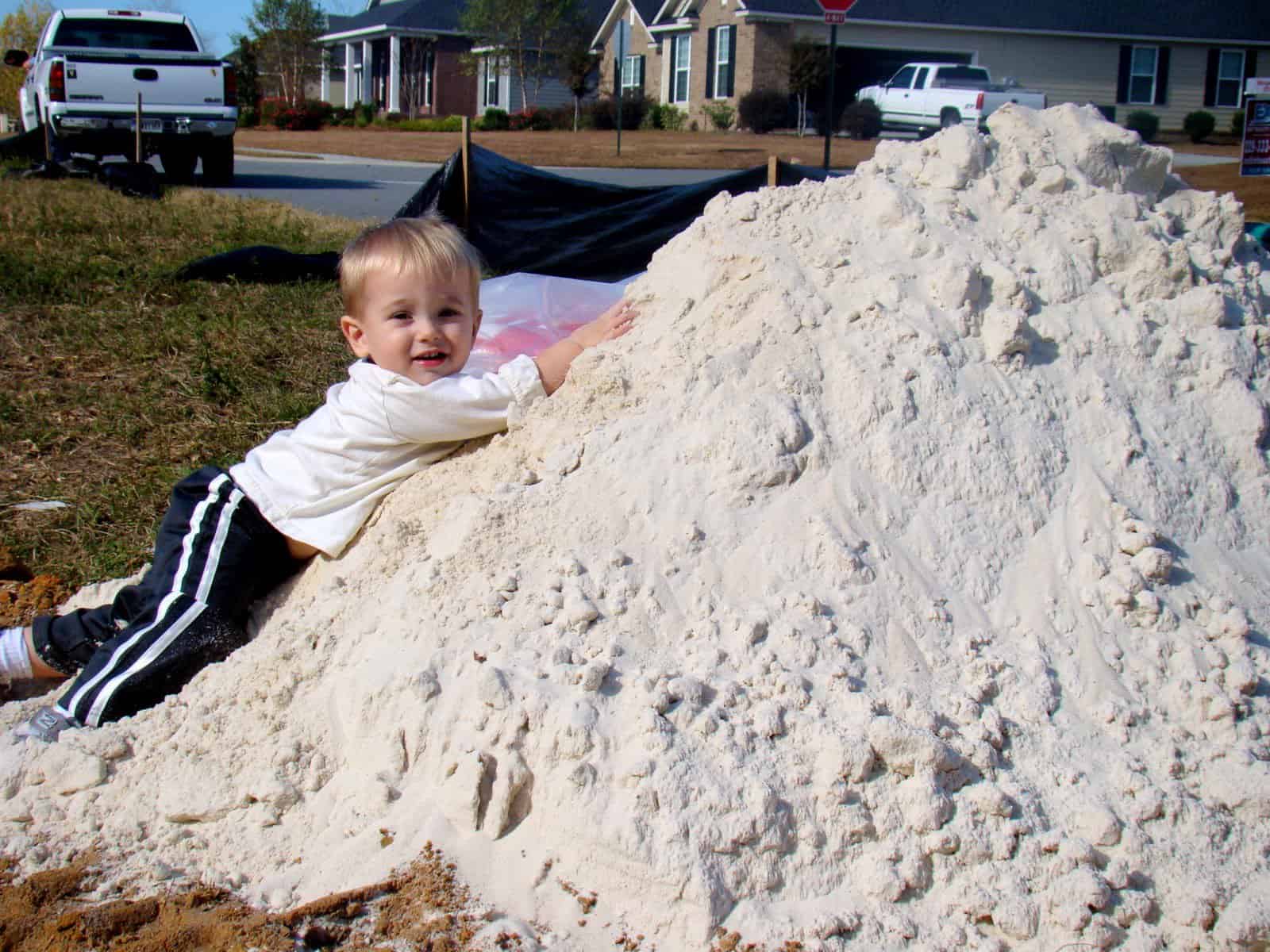
At 21 months old Kye does everything that What to Expect the Toddler Years says he “should” be able to do including:
- build a tower of 2 cubes
- point to 1 body part when asked
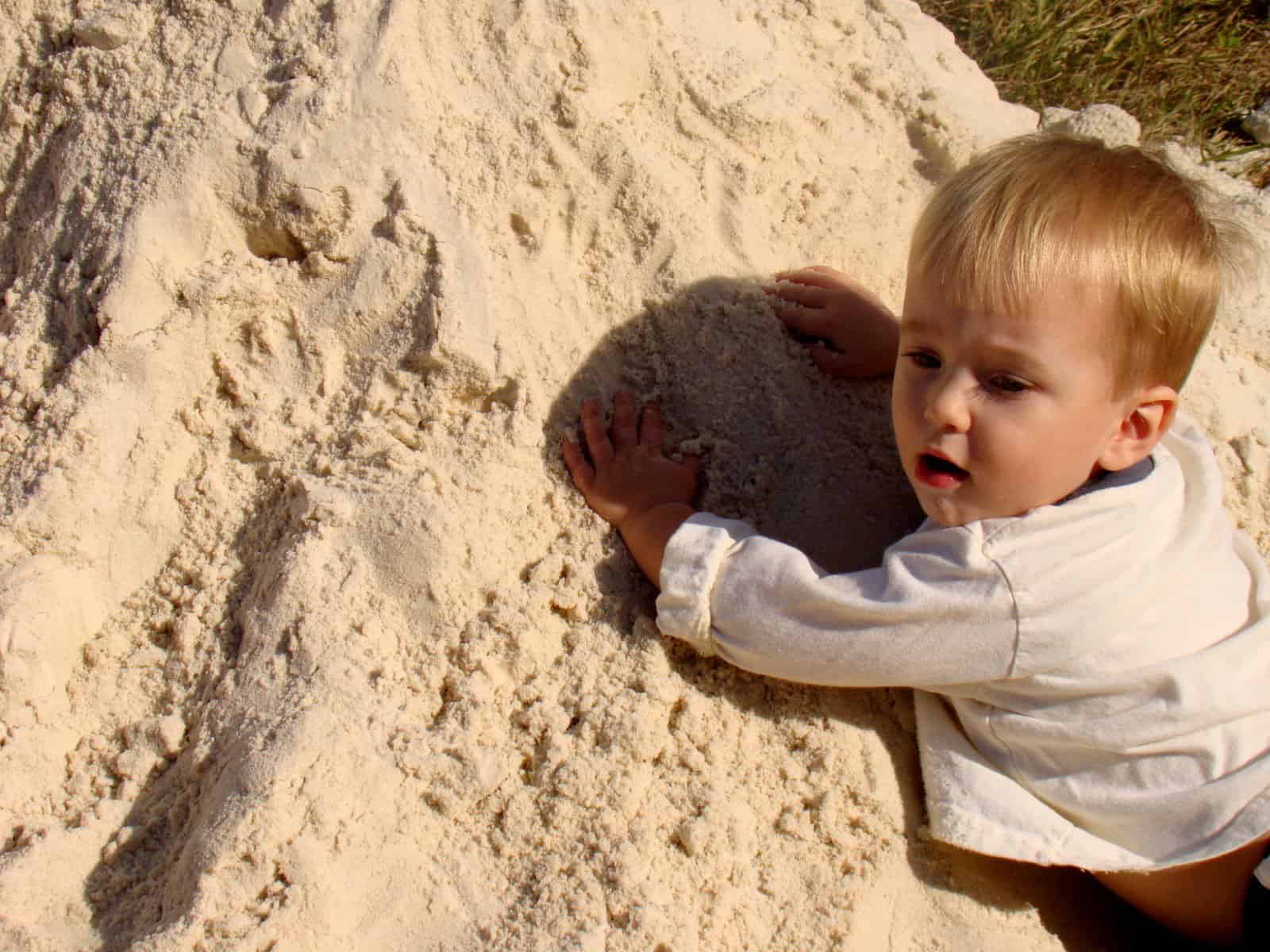
He can do most of the things a 21 month old “will probably” be able to do including:
- kick ball forward
- identify two pictures by pointing
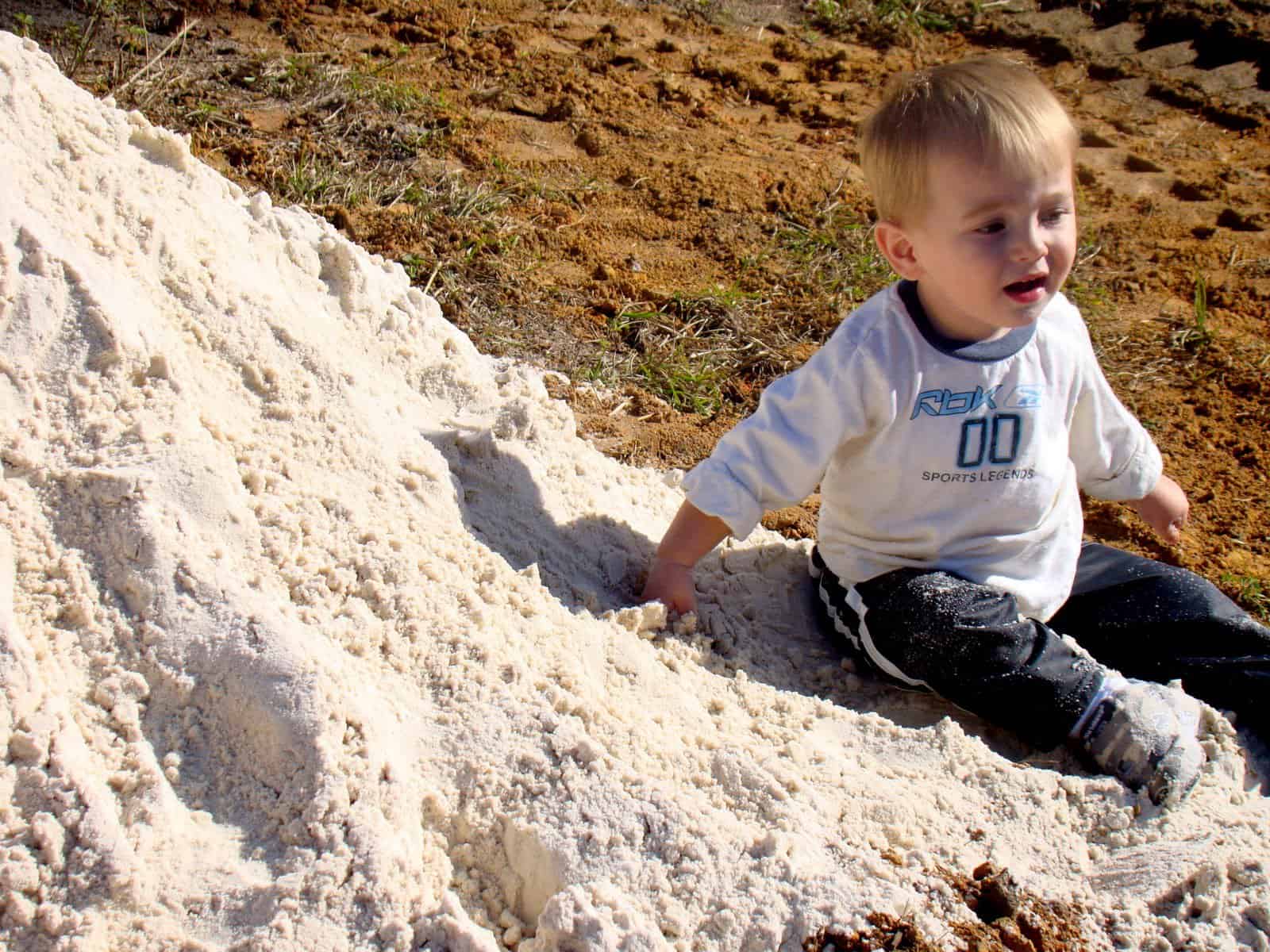
He can do all the things a 21 month old “may possibly” be able to do which there’s only one 🙂
- brush teeth, with help
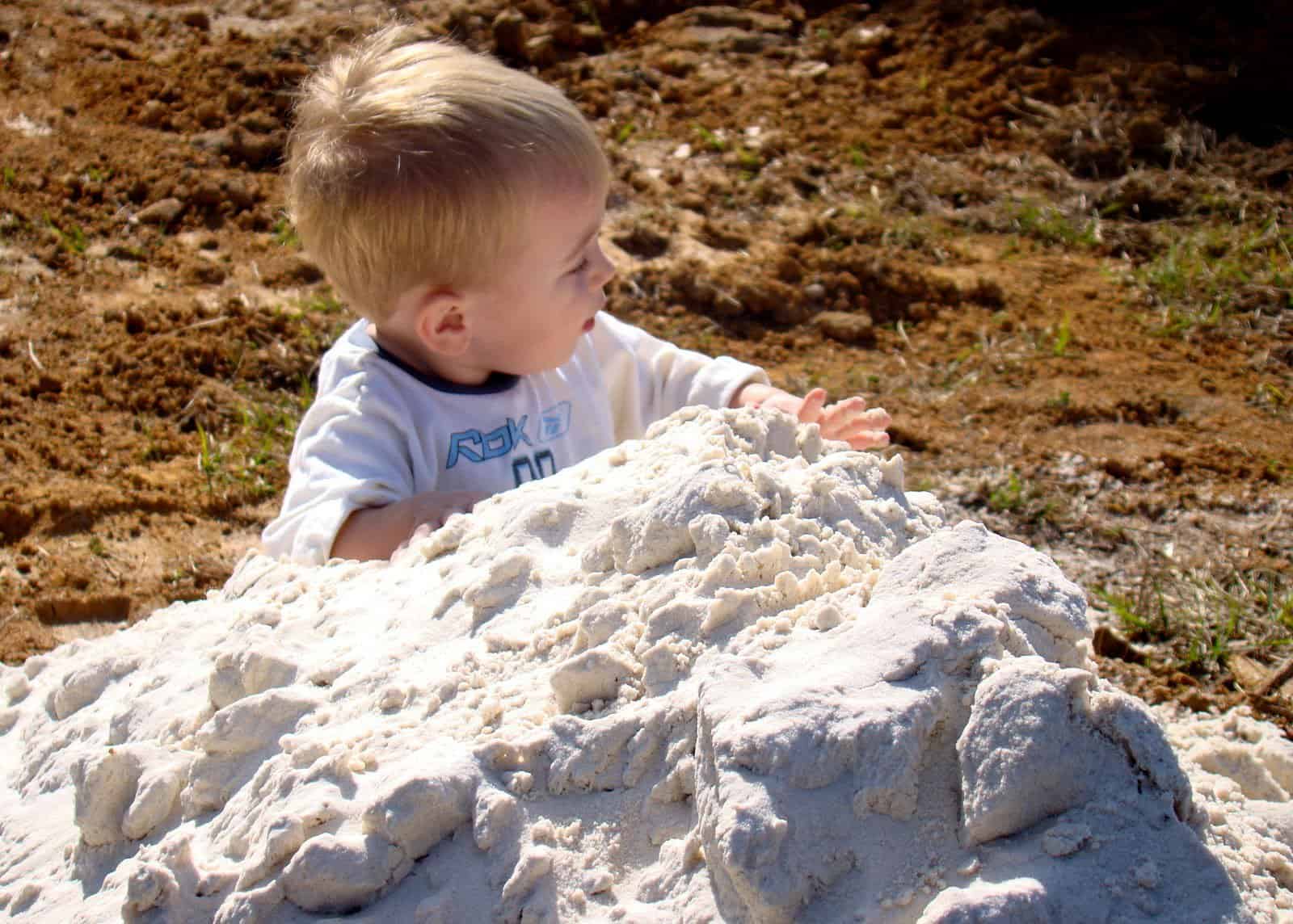
The only things Kye needs to “work on” are:
- remove an article of clothing
- put on an article of clothing
I mean he can take on and off a hat but that doesn’t count right?
And he can take off his socks, but again, don’t think it counts?
I haven’t pushed him learning these skills on purpose!
A good friend (and fellow blogger who keeps hers private though!) Liz told me that her son, Damian, will strip down often and that it’s smart not to teach them to get undressed too young.
So why rush it? The day will come as with potty training it would be beneficial if he could take down his pants then pull them back up 🙂
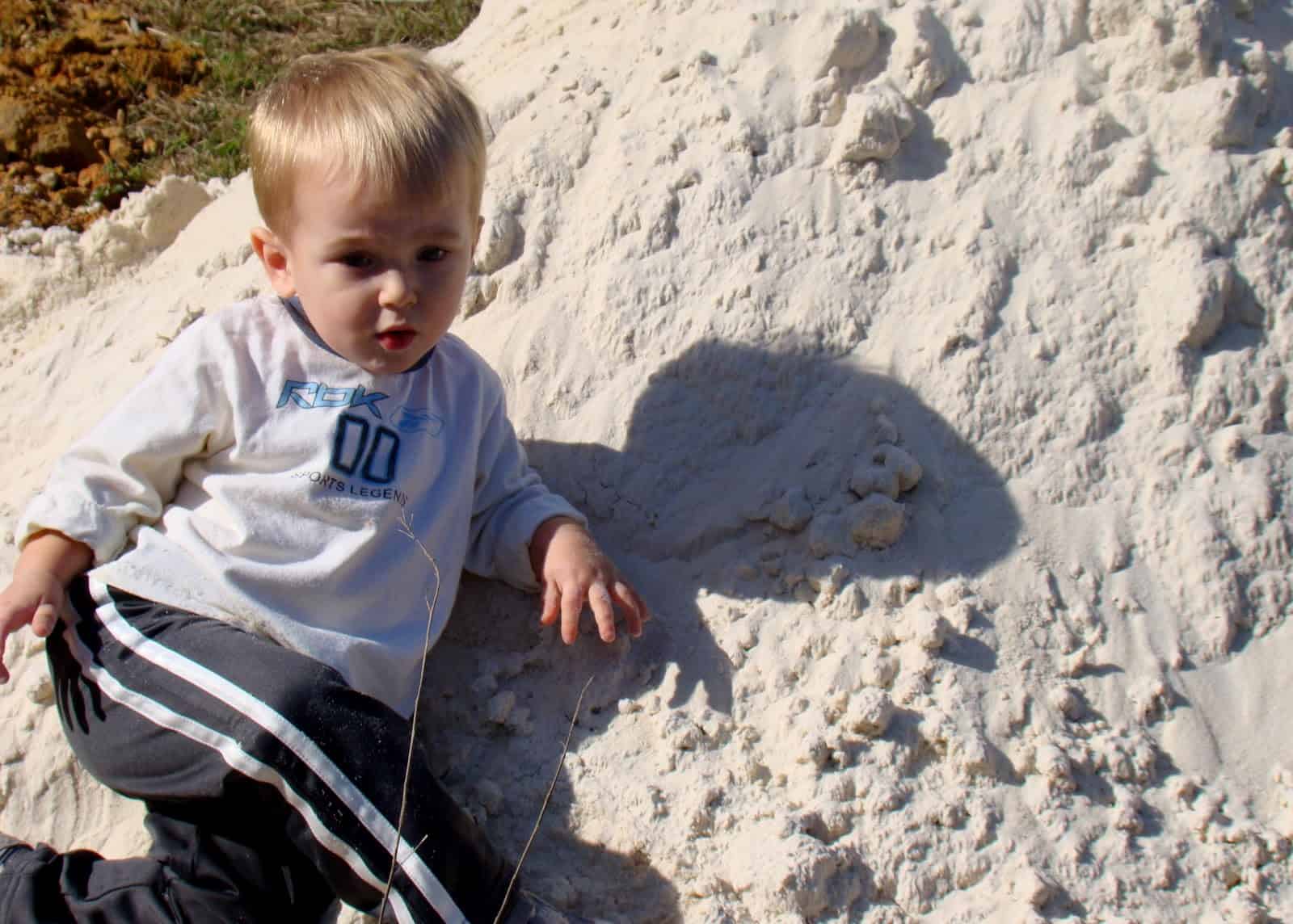
The section of this chapter on teaching time was very beneficial to me.
Kye has zero patience and after reading this I understand why.
When we say “soon” or “later” he doesn’t under stand what those terms mean.
Instead, I need to be explaining things in order.
Like “first we will go potty, then we will eat dinner.”
Using “first” and “next” and explaining that we will do things at a certain time (like “we will go to the playground in the afternoon, right after your nap”) is more helpful for him than just saying “soon” or “in a little bit.”
I need to work on that!
I also need to work on following through when I tell him something and not just assume he’ll forget about it.
If I say “first go potty, then you can have a snack” then I need to give him the snack after he goes potty huh? 🙂
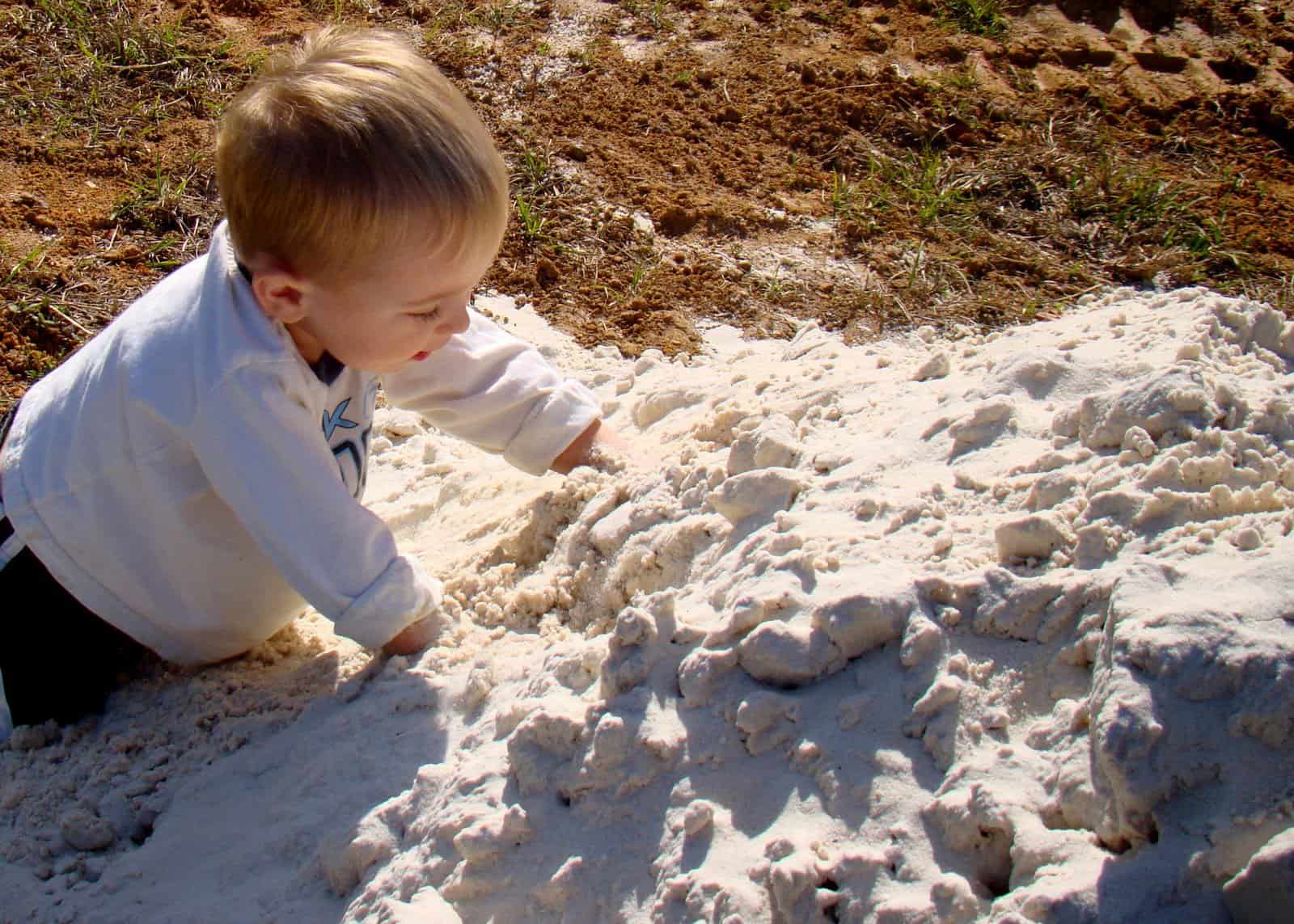
Some of the questions in this chapter were SO dumb to me.
I mean c’mon parents…use a little common sense!!!
One question seriously says this: “I took a bath with our son last night, and he got upset because his penis is much smaller than mine and we didn’t know what to tell him.”
Umm…how about “you’re a little boy and I’m a man so everything you have is smaller than what I have…”
I mean DUH! Someone also wrote in saying that they think it may be unhealthy for them to be kissing their 21-month-old on the lips. Are you kidding????
I’m 26 years old and married and have a kid and I STILL kiss my mom and dad on the lips!!!
I hope Kye always will kiss me on the lips too!
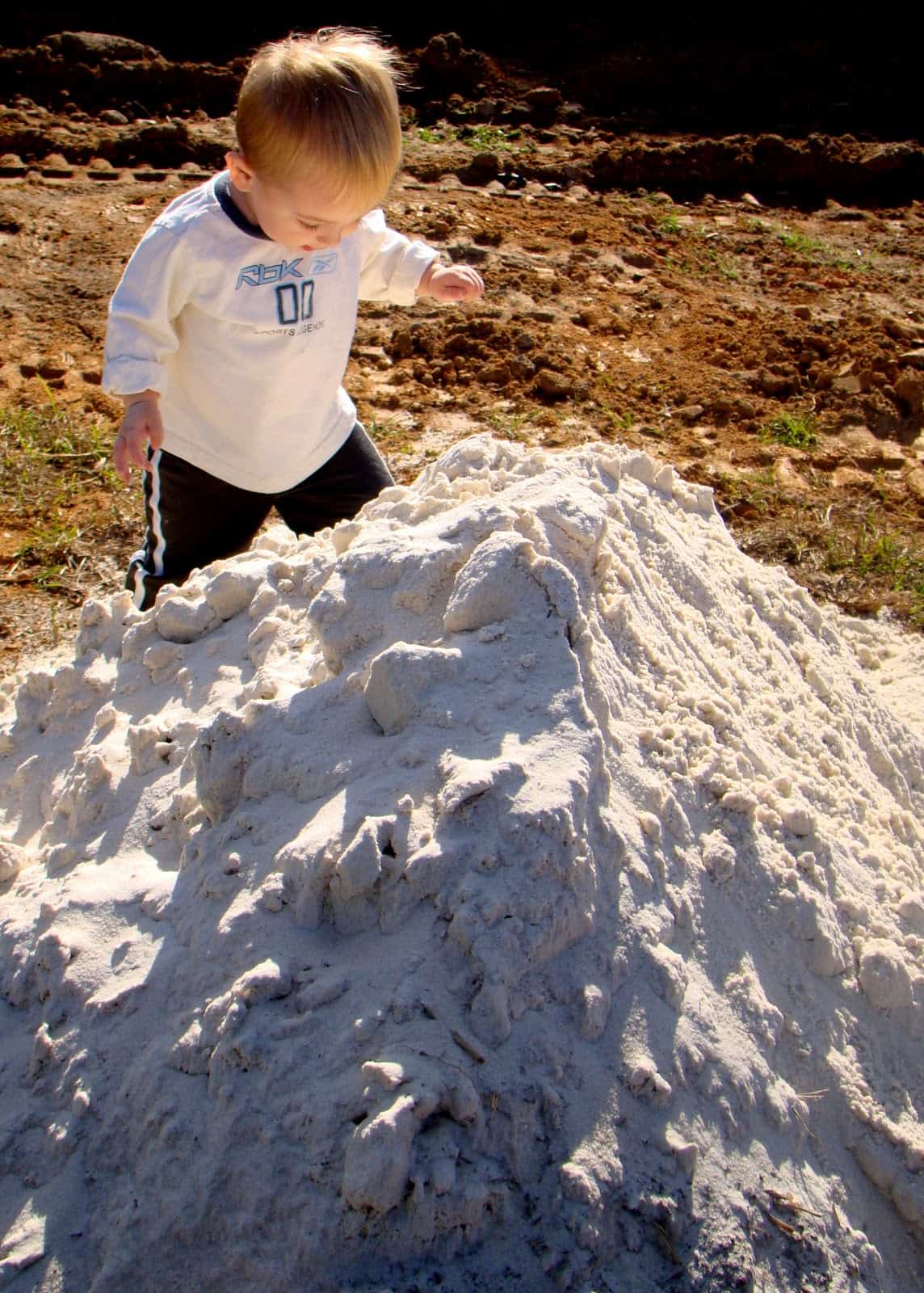
I totally related to the section that talked about loving your toddler, but not always liking them.
This age is TOUGH. I love Kye and I truly enjoy our fun times together but it seems so often he’s either whiney, or frustrated, or pitching a fit, or being testy that I always find myself counting down the minutes until nap or bedtime.
It’s good to know that it’s normal to feel that way and that I’m not alone in it!
I truly believe that having structure back in his life (c’mon Jan!!!) will make a BIG difference in this area, and I’m looking forward to seeing if I’m right!
And reading further into the chapter revealed that I probably am as an entire section is devoted to the importance of routine for a child this age and how to set up such routines for different events in the day (bedtime routine, clean-up routines, etc).
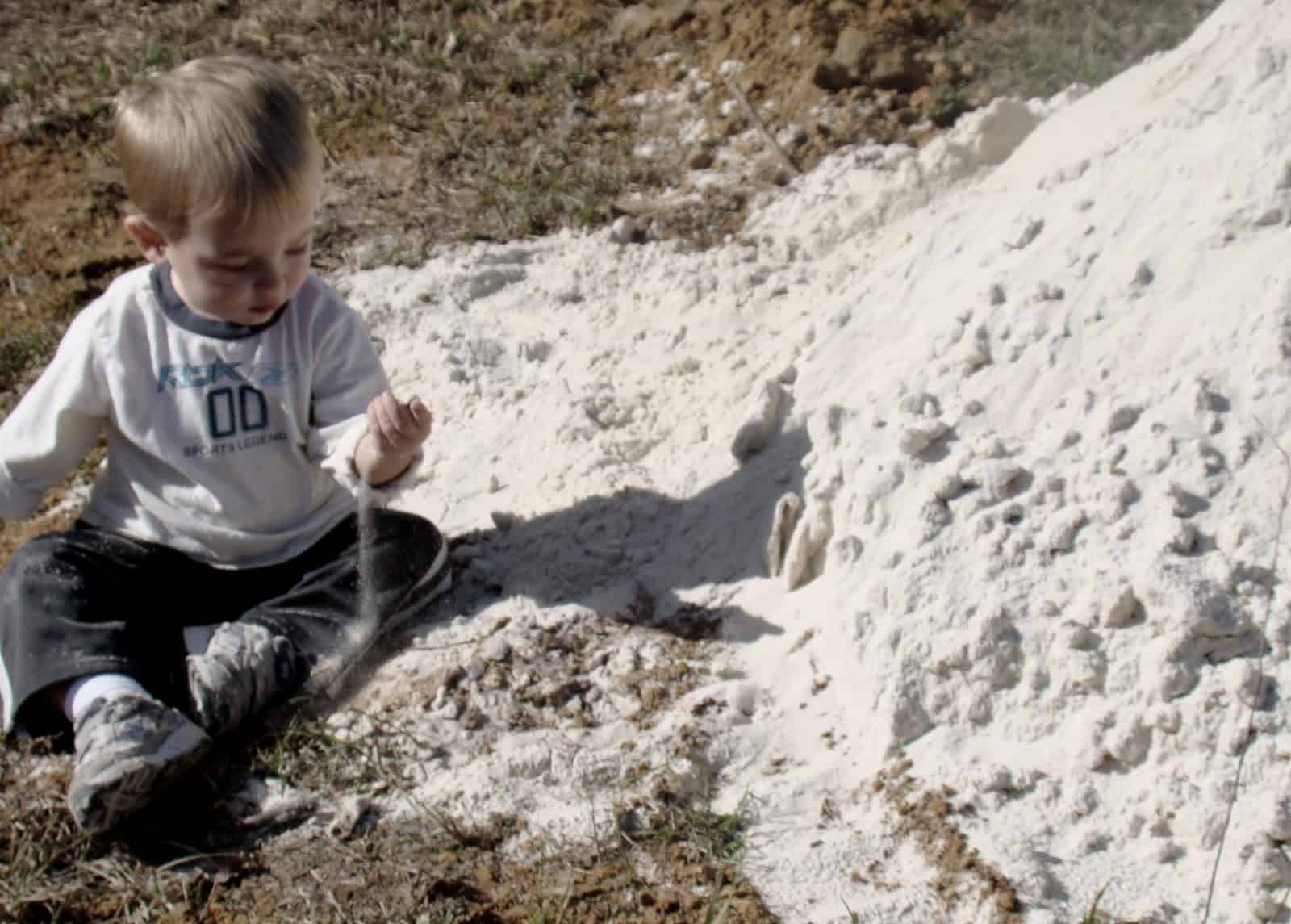
I can relate to the mom who wrote in and said that her husband says they need to be tough with their son because he doesn’t want him to be a sissy or crybaby but she feels like he’s too young to have to be a “man” already.
I agree with the text that learning in childhood how to express how one feels is important for normal growth and development.
Comforting a child who’s hurt or upset and encouraging him to talk about his feelings, both good and bad, will in no way diminish his capacity to grow into a strong and assertive adult.
Such an approach can, in fact, build inner strength. Nor does it produce a crybaby.
You do want to be careful about coddling or overprotecting a child too.
So, like all areas in parenting, there is a fine line.
I believe in comforting Kye but not doing it to an extreme.
I’m not a freak-out Mom but I’m not
I let him express his feelings but that doesn’t mean he gets his way and I am always mindful to point out to him the cause of his feelings or pain (“I’m sorry you hit your head on the wall, maybe next time you should be more careful when you pitch a fit.”).
Another section of the chapter goes into more detail about how, as a mom, I’m the kiss-and-make-better queen and about the power that gives me and how to handle it.
It’s up to us to be the island of calm in a storm and to respond appropriately when stuff happens.
If we say “ugh-oh it’s okay!” then the kid will most likely be okay but if we flip out and run over saying “omg my poor baby are you hurt?” then the kid will probably be hurt because they are reacting to your reaction.
Zach and I have ALWAYS been hardcore about this.
Of
I always try to be calm, recognize his pain (physical and emotional), give some comfort, communicate his feelings, discuss how to change it next time if possible, then move on from it.
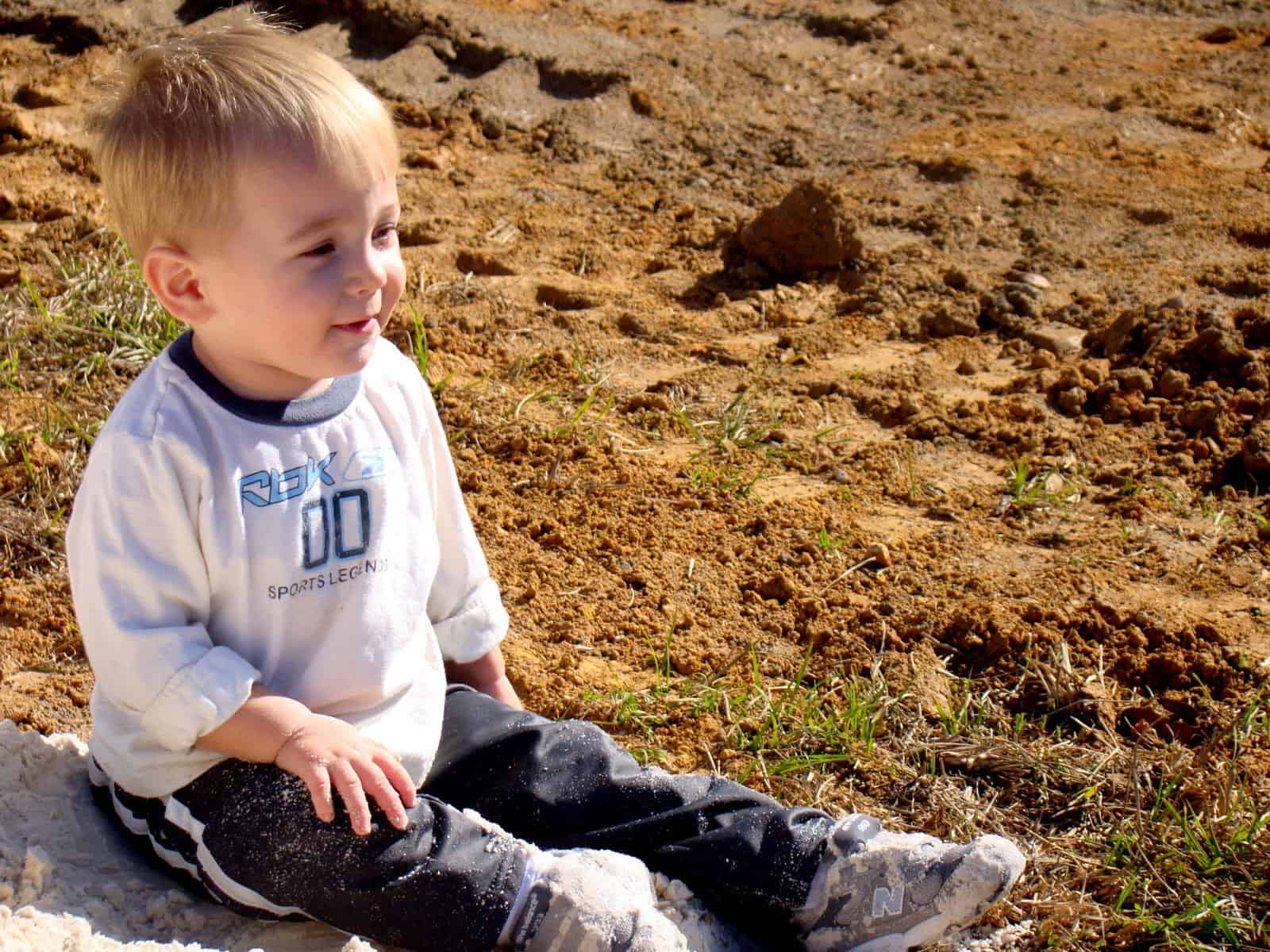
This chapter concluded with a section about teaching your toddler right and wrong.
At this
Reading this makes me feel even better about discipline because it provides the negative consequence when Kye makes a wrong choice 🙂
It says when teaching right and wrong to explain that actions have consequences (we ALWAYS say the “why” when Kye gets disciplined!), not to lecture or preach (give a simple explanation and move on), ask the right questions (ask moral questions when reading books or interacting with people), fault behavior and not people (criticize the behavior, not the child), and set a conscientious example (an ounce of example vastly outweighs a pound of instruction)!
Reading this chapter made me feel much better about myself and my parenting!
I guess even though we’re off course of where I’d like to be with structure, I’m still on course in a lot of other important areas so yay me 🙂
- 10th Birthday Message For My Daughter Love Mom {Tess’s 10th Birthday Letter} - June 12, 2025
- Tips to Maintain Structure While Traveling with Kids - May 22, 2025
- A Letter to my Son on His 16th Birthday From Mom (Kye’s Bday Letter) - April 30, 2025






